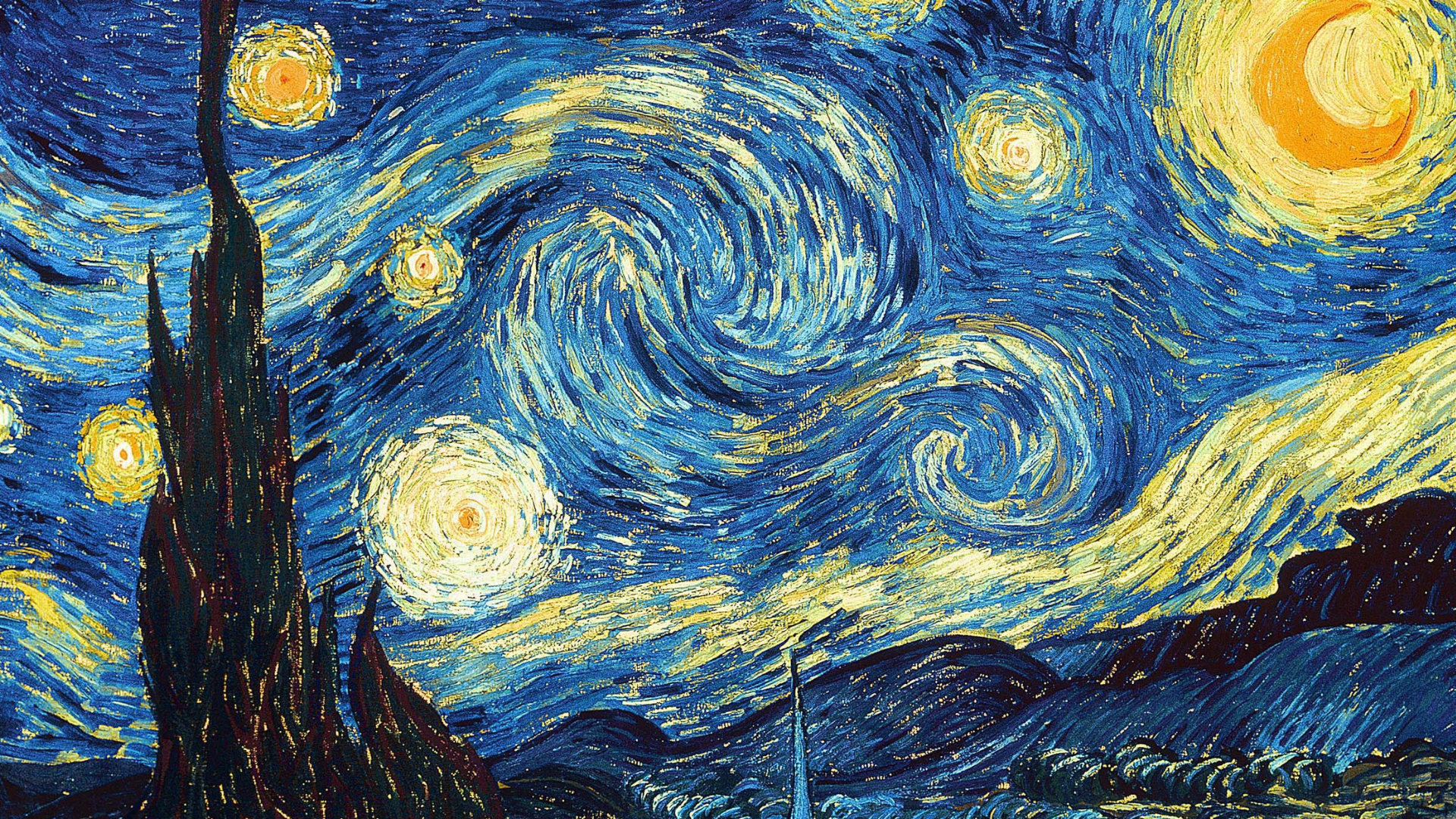6-8-22 More Thoughts on Immersive Experiences
In my last post, I shared that I had recently gone to The Van Gogh Immersive Experience, which coincided with the beginning of our sermon series on The Apostles’ Creed. The first sermon in our new series explored the phrase “I believe in God, the Father Almighty, maker of heaven and earth.” God is the creator of all that is. We are created in the image of God and immersed in a world that is perfectly designed to sustain life with air, water, and food. On top of that, it is beautiful and given us to enjoy. As I write this, I’m listening to Louis Armstrong’s “What a Wonderful World.” It really is, and we have been given the responsibility of caring for and cultivating this wonderful world, a gift of provision for our very lives (Genesis 2:15).
We are not created only for physical life in this world. We are created to know and enjoy an eternal relationship with God both now and forever. Since the fall recorded in Genesis 3, God has been working out our redemption. Jesus, the second person of the Trinity, is the center and fulfillment of that redemption, which The Apostle’s Creed makes clear.
When we say, “I believe in Jesus Christ his only Son, our Lord who was conceived by the Holy Spirit, born of the Virgin Mary,” we are affirming the two natures of Christ. Jesus is fully God and fully human. He is the creator who existed before the foundation of the world and he truly became human through the womb of a woman being born like every other human.
Jesus, the creator of the world, is the Word made flesh. He who existed outside of time and space, being infinite and eternal, chose to immerse himself in our world and live as one of us taking on the limits we know as creatures. Consider these verses:
“In the beginning was the Word, and the Word was with God, and the Word was God. He was in the beginning with God. All things came into being through him, and without him not one thing came into being. What has come into being in him was life, and the life was the light of all people. The light shines in the darkness, and the darkness did not overtake it … and the Word became flesh and lived among us, and we have seen his glory, the glory as of a father’s only son, full of grace and truth” (John 1:1-5, 14).
“Though he existed in the form of God, he did not regard equality with God as something to be grasped, but emptied himself, taking the form of a slave, assuming human likeness” (Philippians 2:6-7).
Jesus chose to immerse himself in this physical world he created, living as one of us. He felt both the joy and sorrow and all that we as humans experience but without sin. He lived a perfect life fulfilling the law in a way we never could in our own effort (Matthew 5:17-20).
For us to believe this truth is remarkable. But the wonder and mystery of it is almost too good to be true. To think that God would choose to become human so that we might be reconciled to him is truly reason for thanks and praise.
Of course, Jesus didn’t just become human. Jesus immersed himself in the full human experience as he “suffered under Pontius Pilate, was crucified, dead, and buried.” He did this in a real human body with real human emotions.
Consider the account of Jesus in Gethsemane recorded in Matthew 26:37-40: “He took with him Peter and the two sons of Zebedee and began to be grieved and agitated. Then he said to them, ‘My soul is deeply grieved, even to death; remain here, and stay awake with me.’ And going a little farther, he threw himself on the ground and prayed, ‘My Father, if it is possible, let this cup pass from me, yet not what I want but what you want.’ Then he came to the disciples and found them sleeping, and he said to Peter, ‘So, could you not stay awake with me one hour?’”
In this passage we see the grief and dread that Jesus felt the night before his crucifixion. The cup he asked to be taken away is the cup of God’s wrath that is spoken of in the Old Testament. He is going to drink that cup all the way to the bottom as he bears the divine judgment for sin for all humanity.
While some may be troubled by Jesus’ request to have the cup taken from him, I see in his prayer a genuine human being, one who is fully human as well as fully divine. I begin to catch a glimpse of the emotional and spiritual suffering that he is experiencing, and I gain deeper appreciation for the horror and agony that awaits him on the cross. And. I see a Jesus to whom we can relate. This is no comic strip superman who is “faster than a speeding bullet, more powerful than a locomotive, able to leap tall buildings at a single bound” and is able to defy human limits. The Jesus we see in Gethsemane is truly immersed in our human experience, even with all its suffering.
This is important to us. We have a Savior who understands us. We have a Savior who knows what it is like to be in a world where “bad things happen to good people,” which has always been true. But it seems relevant these days with the ongoing war in Ukraine and so many mass shootings. Our Savior is the one who wept at the grave of his friend Lazarus and felt overwhelming grief and anguish in the garden. As Isaiah 53:3 says, “he is a man of sorrows, and acquainted with grief.”
Jesus not only takes on our moral guilt and sin in our place, he also bears the heartache of our suffering. He weeps with us as we weep. He is the one person who knows all our heartache and all our pain, not just because he is omnipotent, but because he lived a real human life in this broken and sinful world.
We as believers in Christ have something no other religion offers. We have hope that this suffering will not last forever. And we have intimacy now with the One whose resurrected hands still bear the scars from the nails. Jesus’ suffering and death has brought us salvation, and we will be reminded of that forever. And even now, whatever our present experience, we have a Savior who knows experientially what it is to suffer. Jesus’ intimate, loving, and caring presence really can bring us comfort.
One of the strange paradoxes of our lives is that our own suffering is what God uses to transform us and to make us more loving, more compassionate and better able to come alongside those who suffer. And that is our calling. Our faith is not theoretical. It is meant to be connected with practical realities, which often involve suffering. We are not to be detached from suffering but “to mourn with those who mourn.” As one writer said, “Christians following Jesus are deeply attached, and covered with tears—their own, and those of others—just like their Lord.”
I know from experience how prayers offered, notes sent, and meals provided can encourage and help sustain us in times of suffering. I’m deeply grateful for those who have deeply attached to us. And I’m grateful our ECMI/New Hope mission partners in Ukraine who are supporting the suffering there everyday, even in the midst of their own. And members of our own congregation are supporting refugees in a time of difficult. I could go on and on.
Jesus’ disciples fell asleep in his hour of need. Let’s pray we do not do the same. May we be awake to the needs around us and sensitive to the Lord’s promptings to come alongside others to love and support them in their suffering.


